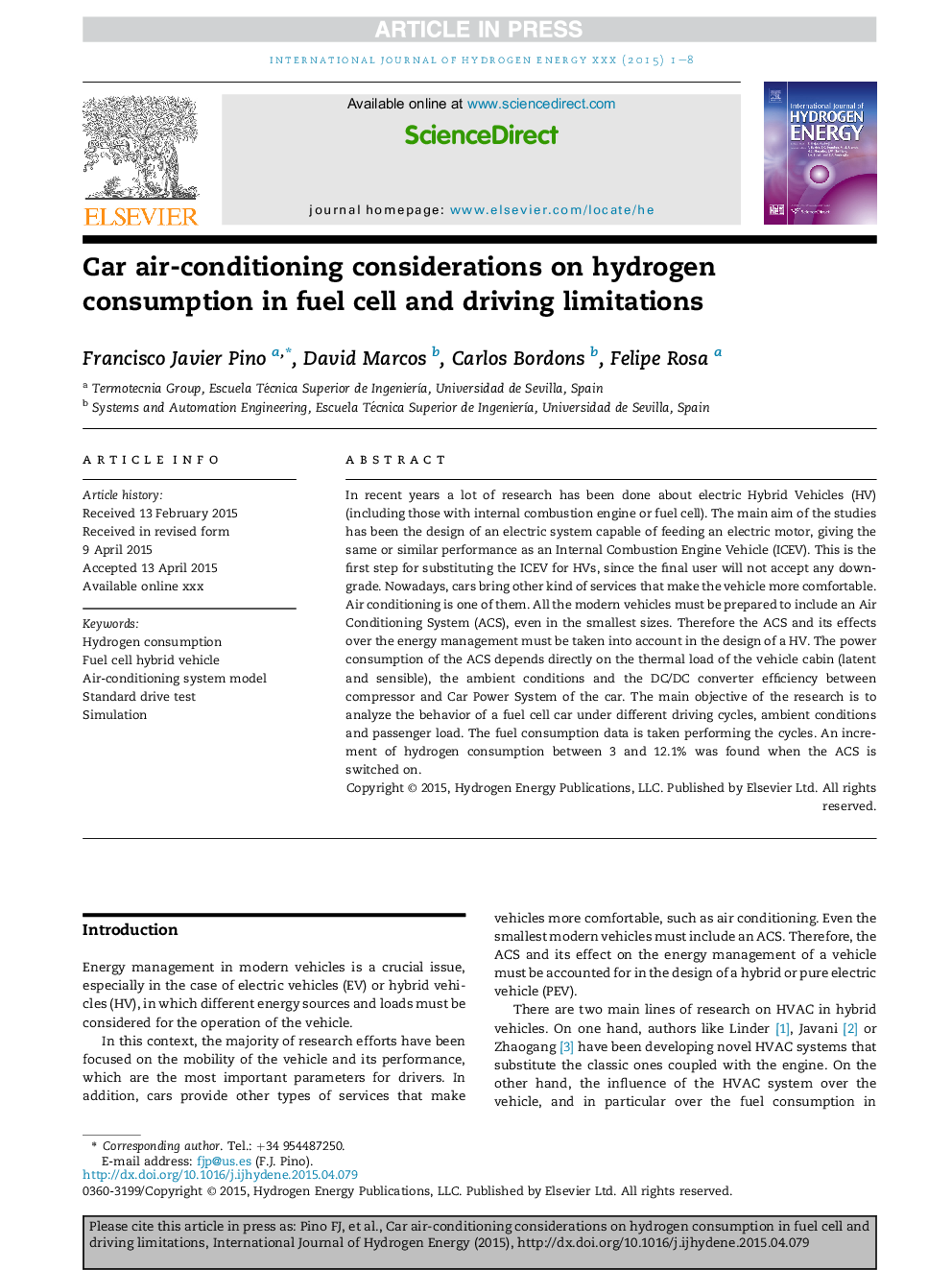| Article ID | Journal | Published Year | Pages | File Type |
|---|---|---|---|---|
| 7714219 | International Journal of Hydrogen Energy | 2015 | 8 Pages |
Abstract
In recent years a lot of research has been done about electric Hybrid Vehicles (HV) (including those with internal combustion engine or fuel cell). The main aim of the studies has been the design of an electric system capable of feeding an electric motor, giving the same or similar performance as an Internal Combustion Engine Vehicle (ICEV). This is the first step for substituting the ICEV for HVs, since the final user will not accept any downgrade. Nowadays, cars bring other kind of services that make the vehicle more comfortable. Air conditioning is one of them. All the modern vehicles must be prepared to include an Air Conditioning System (ACS), even in the smallest sizes. Therefore the ACS and its effects over the energy management must be taken into account in the design of a HV. The power consumption of the ACS depends directly on the thermal load of the vehicle cabin (latent and sensible), the ambient conditions and the DC/DC converter efficiency between compressor and Car Power System of the car. The main objective of the research is to analyze the behavior of a fuel cell car under different driving cycles, ambient conditions and passenger load. The fuel consumption data is taken performing the cycles. An increment of hydrogen consumption between 3 and 12.1% was found when the ACS is switched on.
Related Topics
Physical Sciences and Engineering
Chemistry
Electrochemistry
Authors
Francisco Javier Pino, David Marcos, Carlos Bordons, Felipe Rosa,
